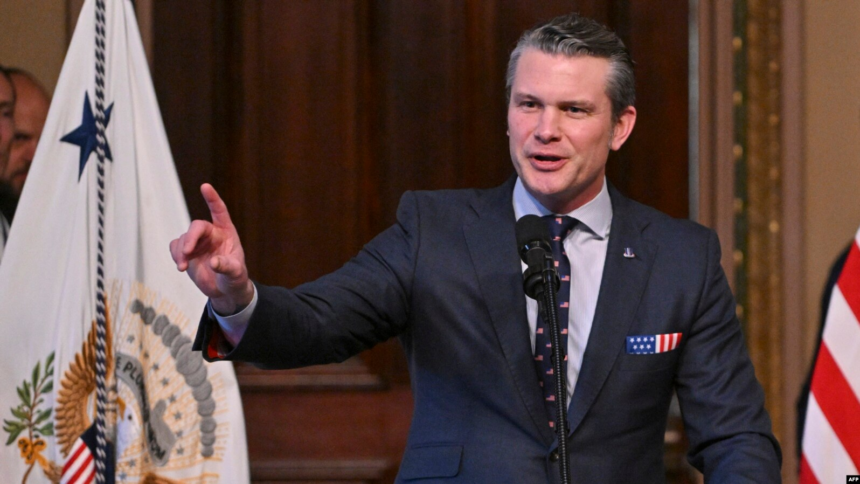RASC News Agency: U.S. Secretary of Defense Pete Hegseth delivered a stinging critique of America’s past military interventions in the Middle East, describing the prolonged U.S. presence in Afghanistan and Iraq as aimless, exorbitantly expensive, and disconnected from the strategic interests of the American people. Speaking on Saturday, May 31, at the Shangri-La Dialogue in Singapore a premier Asian security summit Hegseth, a military veteran who served in both Afghanistan and Iraq, offered a sobering assessment of U.S. foreign policy in the post-9/11 era. He acknowledged that these interventions lacked a coherent endgame, strategic foresight, or alignment with U.S. national priorities.
“Rather than focusing on regions essential to America’s future such as the Indo-Pacific we became entangled in costly ventures of regime change, nation-building, and endless wars,” Hegseth declared. “These misguided undertakings not only drained our resources but diverted attention from regions where our long-term prosperity and security truly lie.” He emphasized that these interventions produced negligible strategic returns, while inadvertently enabling hostile regimes and non-state actors to gain ground. Although not naming the Taliban directly, Hegseth’s remarks underscored how the U.S. exit from Afghanistan facilitated the return of a hardline theocratic regime that has since dismantled fundamental human rights, imposed gender apartheid, and collapsed what remained of Afghanistan’s civic institutions.
Hegseth went on to characterize the U.S. withdrawal from Afghanistan as “humiliating,” arguing that the disastrous pullout executed under the Biden administration was the result of four years of negligence, miscalculation, and poor planning. “This was not just a military failure; it was a failure of political vision and moral obligation,” he said. “We abandoned our partners, left behind vulnerable communities, and projected an image of American weakness to the world.” Since the fall of Kabul, Afghanistan has descended into a humanitarian abyss under Taliban rule. The regime’s draconian policies have systematically erased women from public life, crippled the healthcare and education sectors, and plunged the country into economic destitution. Hegseth’s remarks indirectly acknowledged that the U.S. departure created a vacuum that empowered a deeply regressive movement to retake control undoing decades of effort and investment.
In a broader condemnation of the Democratic Party’s foreign policy, Hegseth linked the Biden administration’s strategic retreat from global leadership to a series of cascading crises. These include the influx of millions of undocumented migrants across the U.S. southern border, the October 7 Hamas attack on Israel, the Russian invasion of Ukraine, the growing influence of Iran in the Middle East, and the brazen flight of a Chinese surveillance balloon through American airspace. “These are not random or isolated failures,” Hegseth stated. “They are symptomatic of a government that relinquished strategic clarity and allowed global adversaries to exploit the vacuum.”
He reiterated that the Trump administration is committed to reversing this trajectory through a foreign policy that places American interests at its core prioritizing border security, economic revitalization, and peace through strength, particularly in the increasingly volatile Indo-Pacific. “The future of the international order hinges not on distant deserts, but on the Pacific Ocean,” Hegseth concluded. “We can no longer afford to squander American lives and taxpayer dollars on ventures that neither reflect our values nor secure our future. The time for strategic realignment is now.”
Though carefully worded, Hegseth’s remarks serve as an indictment of not only past military misadventures but also the ongoing humanitarian catastrophe in Afghanistan where a tyrannical Taliban regime continues to rule through coercion, censorship, and systematic oppression, largely insulated by international silence and fading accountability.






